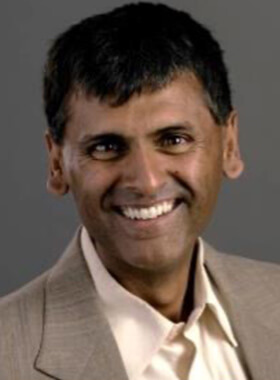A Multi-Scale Experimental and Simulation Approach for Fractured Subsurface Systems
Hari Viswanathan
Los Alamos National Laboratory, USA

Biosketch
Dr. Viswanathan has advanced degrees in chemical (B.Sc.) and environmental engineering (M.S., PhD). He is an expert in subsurface flow and transport modeling and is a Senior Scientist in Earth and Environmental Sciences Division at Los Alamos National Laboratory. He has worked across multiple scales to study subsurface flow and transport in fractured and porous media. Viswanathan has over 150 publications in the area of energy and global security with an h-index of 46 with over 7000 citations and has large multi-disciplinary projects such as reducing the water footprint of hydraulic fracturing operations. He was worked on a wide range of applications such as nuclear waste disposal, carbon sequestration, unconventional oil and gas and nuclear nonproliferation.
Introduction of the Lecture
Fractured systems play an important role in numerous subsurface applications including hydraulic fracturing, carbon sequestration, geothermal energy and underground nuclear test detection. Fractures that range in scale from microns to meters and their structure control the behavior of these systems which provide over 85% of our energy and 50% of US drinking water. Determining the key mechanisms in subsurface fractured systems has been impeded due to the lack of sophisticated experimental methods to measure fracture aperture and connectivity, multiphase permeability, and chemical exchange capacities at the high temperature, pressure, and stresses present in the subsurface. In this study, we developed and use microfluidic and triaxial core flood experiments required to reveal the fundamental dynamics of fracture-fluid interactions. In addition we have developed high fidelity fracture propagation and discrete fracture network flow models to simulate these fractured systems. We also have developed graph-based machine learning emulators of these fracture simulators in order to conduct uncertainty quantification and enable near real-time analysis for these systems. We describe an integrated experimental/modeling multi-scale approach that allows for a comprehensive characterization of fractured systems and develop models that can be used to optimize the reservoir operating conditions over a range of subsurface conditions.
H. Viswanathan, J.W. Carey, L. Frash, S. Karra, J. Hyman, Q. Kang, E. Rougier, G. Srinivasan
